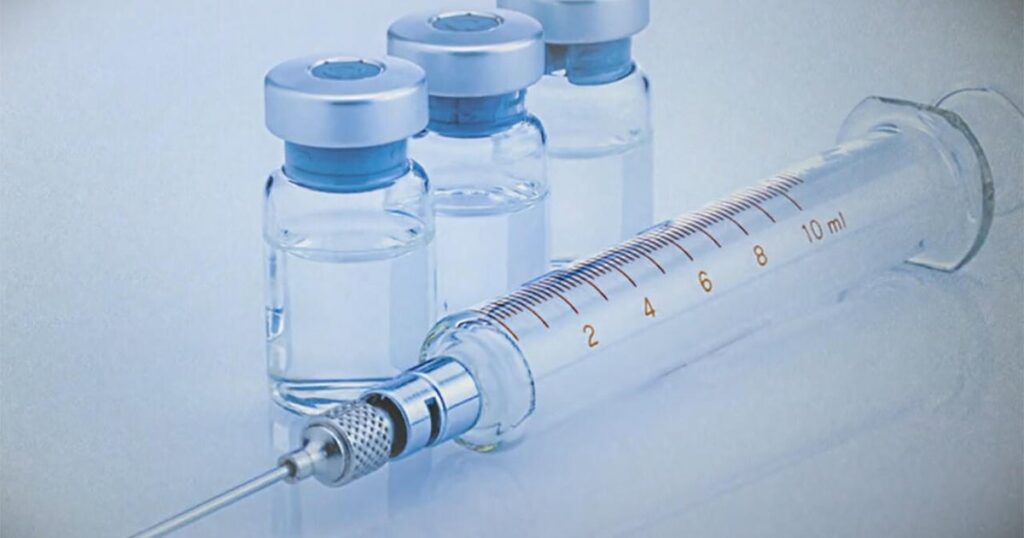In a significant moment for public health in America, Health and Human Services Secretary Robert F. Kennedy Jr. faced intense scrutiny during a Senate Finance Committee hearing last week. His controversial views on vaccines sparked heated exchanges among congressional members, reflecting deep divides in health policy. Amidst rising tensions, the hearing brought to light concerns about received public health messages and their implications on vaccine trust and safety.
| Article Subheadings |
|---|
| 1) Kennedy’s Testimony and Congressional Reactions |
| 2) Support and Opposition Amongst Legislators |
| 3) Resignations at the CDC and Distrust Issues |
| 4) Implications of Kennedy’s Policies on Public Health |
| 5) The Global Picture and Future of Vaccination |
Kennedy’s Testimony and Congressional Reactions
During the recent hearing held on Thursday, Robert F. Kennedy Jr. presented a defense of the Trump administration’s public health strategies, particularly emphasizing a shift towards preventive care. He proclaimed, “
We at HHS are enacting a once-in-a-generation shift from a sick-care system, to a true health care system that tackles the root causes of chronic disease.
” This statement drew mixed reactions from lawmakers, with some decrying the policies as dangerous to public health.
Senator Michael Bennet of Colorado made a passionate retort, asserting, “
This is not a podcast. It is the American people’s health that is on the line here.
” His remarks underscored the urgency and gravity of the situation, as public health safety was placed at the forefront of the discussion.
Support and Opposition Amongst Legislators
While many Democratic senators expressed sharp criticism towards Kennedy, several Republican senators backed him, seeing him as a key figure in the Trump administration’s health policies. Senator Mike Crapo of Idaho declared, “President Trump and Secretary Kennedy have made a steadfast commitment to make America healthy again,” showcasing the supportive stance from the Republican bench.
Conversely, Senator John Barasso raised alarms regarding Kennedy’s personal vaccine skepticism, indicating that ongoing doubts about safety could jeopardize the public’s embrace of established vaccines. He stated, “There are real concerns that safe, proven vaccines like measles, like hepatitis B and others, could be in jeopardy,” highlighting the contentious climate surrounding vaccine discourse.
Resignations at the CDC and Distrust Issues
Amid the mounting tensions, the resignation of four officials from the Centers for Disease Control and Prevention (CDC) drew attention. Notable resignations included Dr. Jennifer Layden and Dr. Demetre Daskalakis, with some citing the adverse effects of Kennedy’s vaccine policies on their professional integrity. Dr. Daskalakis voiced his concern, stating, “
It’s why I left; I’m very concerned.
” He expressed a profound distrust in the current recommendations for COVID-19 vaccinations among children.
These resignations reflected a wider apprehension regarding the efficacy of guidance being provided amid shifts in policy focus from the Trump administration. The claims suggest a broader distrust among health officials and raise alarms about potential repercussions for public health messaging.
Implications of Kennedy’s Policies on Public Health
The recent changes in public health policy and vaccine requirements herald potential ramifications on the way Americans perceive vaccination. As some states move to safeguard vaccination programs, others like Florida’s Republican governor announced plans to eliminate all childhood vaccine requirements. This bifurcation indicates a growing divide in state-level health policies that parallels ongoing national conversations.
Public health expert Dr. Atul Gawande articulated the risks associated with such discrepancies, emphasizing, “
It’s severely splintered, and I’m very worried about it, because diseases don’t obey borders.
” His insights further illuminate concerns about the national and international health landscape that could emerge from conflicting vaccination policies across the states.
The Global Picture and Future of Vaccination
The upcoming meeting of the CDC’s vaccine advisory board, now featuring appointees from Secretary Kennedy, poses critical questions about the future of vaccination guidance. The decisions made may set a precedent that either undermines or upholds public trust in vaccines, influencing future health outcomes.
Experts emphasize the significance of restoring trust in public health agencies. Dr. Gawande suggests that maintaining transparency and fostering open dialogue is critical to bridging divides. “
Trust helps assuage doubt.
” Yet, he also cautions that trust is difficult to secure in an environment filled with chaos and misinformation. The task ahead remains daunting as health officials work to regain credibility amid prevailing skepticism.
| No. | Key Points |
|---|---|
| 1 | Health and Human Services Secretary Robert F. Kennedy Jr. faced tough questioning during a recent Senate hearing regarding public health policy. |
| 2 | Kennedy defended the Trump administration’s approach to vaccine policy while facing criticism from several senators. |
| 3 | Four high-ranking officials resigned from the CDC, citing distrust in the current vaccine policies. |
| 4 | There are significant divisions among state health policies regarding vaccination requirements. |
| 5 | Experts warn that inconsistent public health messaging could lead to detrimental health outcomes. |
Summary
The recent Senate hearing regarding Secretary Robert F. Kennedy Jr. reflects the polarized landscape of public health and vaccine policy in the United States. With divisions growing among legislators and health officials expressing distrust, the pathway forward remains uncertain. As vaccination policies and public trust are tested, continued dialogue about health protocols and scientific integrity becomes vital to restore confidence in public health systems.
Frequently Asked Questions
Question: What is the significance of the Senate Finance Committee hearing involving Robert F. Kennedy Jr.?
The hearing is significant as it reflects intense scrutiny and debate surrounding public health policies, particularly vaccination practices under the Trump administration.
Question: What was the response from various senators regarding Kennedy’s vaccine policies?
Senators were split, with some defending Kennedy’s approach as a commitment to improving health, while others criticized his anti-vaccine sentiments and raised concerns about their potential impact on public health.
Question: How have recent resignations at the CDC affected public health discussions?
The resignations signify a growing mistrust among health officials regarding current vaccine policies, potentially complicating public messaging and trust in vaccination programs.


